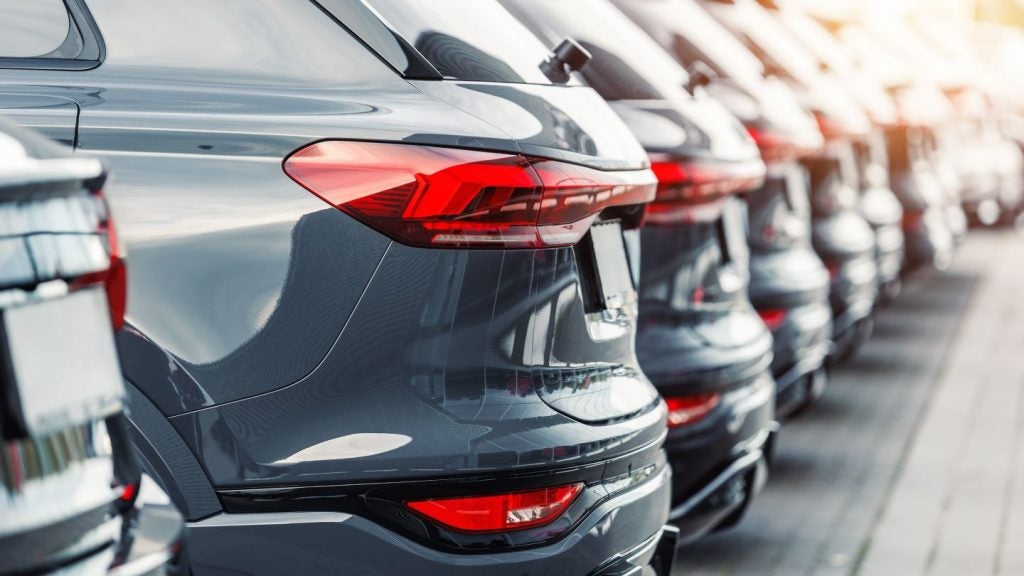Developing financial products
for the ever-more sophisticated Sharia-compliant market has the
potential to open up huge new markets for vehicle financiers.
Fahim uz Zaman explains the
basics.
Understanding Islamic Vehicle Financing
Financial institutions have a variety of
models to provide car financing to customers. Most of these are
considered permissible by the majority of Sharia scholars and any
given model used depends on the nature of the risk the financial
institution is willing to share and manage during the financing
tenor.
Therefore, each model has certain requirements
which need to be fulfilled by the financial institution.
Additionally, car financing in general needs to comply with certain
rules, irrespective of the model on which it is based. These rules
reflect the central tenets of Islamic Sharia.
Requirements for Sharia
compliance
Although Sharia-compliant car financing
products are constructed differently, they share some common
attributes with regards to their compliance with Sharia rules:
• The direct participation of the financial
institution in the car sale and purchase. The nature of a financial
institution’s participation will vary, depending on the model on
which car financing is based.
How well do you really know your competitors?
Access the most comprehensive Company Profiles on the market, powered by GlobalData. Save hours of research. Gain competitive edge.

Thank you!
Your download email will arrive shortly
Not ready to buy yet? Download a free sample
We are confident about the unique quality of our Company Profiles. However, we want you to make the most beneficial decision for your business, so we offer a free sample that you can download by submitting the below form
By GlobalDataFor instance, in Ijarah-
(leasing) based schemes, the financial institution purchases the
car from the seller before renting it to the customer.
In Murabahah- (sale on
deferred payment basis) based schemes, the bank purchases the car
from the seller before selling it to the customer on a deferred
payment basis.
In Musharakah-
(participating equity) based models, the bank purchases the vehicle
in partnership with the customer and subsequently sells the stake
to the customer. The bank holds the risk related to the ownership
of asset during the period of ownership.
• Financial institutions cannot benefit from
penalties paid by the customer in the case of late payment. Such
charges are typically required to be donated to charity. In some
cases, Sharia scholars have allowed financial institutions to
retain a portion of penalties on account of the cost incurred in
recovery.
• The restriction on financial institutions to
impose any additional charges or fees at their own discretion,
other than those which have been agreed upon with the customer at
the beginning of the financing period, based on the customer’s
obligations in that particular contract. This requirement will have
different implications depending on the model used.
Under Murabahah-based car financing, the
financial institution can require the customer to pay additional
charges, on top of his original financial obligations, in case of
customer default and repossession of the vehicle by the financial
institution.
In Ijarah-based financing, the bank cannot
demand additional charges in the case of customer default and
repossession of the vehicle, as the car is leased to the customer
on a rental basis.
In Musharakah-based financing, the
financial institution can only recover the net outstanding.
Various models of
financing
There are four major models of
Sharia-compliant car financing available:
• Ijarah-based financing (lease purchase
agreement);
• Murabahah-based financing (sale on
deferred payment basis);
• BBA-based financing (sale-buy-back
agreement); and
• Diminishing Musharakah-based
financing.
Ijarah-based
financing
Under this financing model, the financial
institution buys the car on behalf of the customer, according to
the specifications provided by the customer.
The financial institution then gives the vehicle to
the customer on lease and charges rent for its use. At the end of
the financing period, ownership of the car is transferred to the
customer. In some cases, financial institutions charge rent on a
fixed-rate basis.
In other cases, a variable leasing rate is offered
to the customer. The variable rate is typically pegged to the
interbank rate in the local market.
This type of financing arrangement is offered by
banks and finance companies in Malaysia and Pakistan.
Murabahah-based
financing
Financial institutions in the Middle East
typically use Murabahah for Sharia-compliant car
financing.
Under Murabahah-based financing, the
financial institution sells the vehicle to the customer on a
deferred payment basis and the selling price is divided into equal
monthly instalments. Some institutions offer an arrangement in
which the customer pays lower monthly instalments in the beginning
and compensates for this in later instalments.
Bai Bithaman Ajil-based
model
In Malaysia, some banks, including Bank
Islam Malaysia, offer car financing through the Bai Al
Inah or Bai Bithaman Ajil (BBA) sales process.
This involves the bank offering a benevolent loan
to the customer to purchase a car. The customer subsequently signs
a sale and buy-back contract with the bank. In this arrangement the
sale price paid by the customer is lower than the purchase from the
bank.
The difference between the two prices is the bank’s
profit, payments for which remain the same during the financing
term. Using this mechanism, a bank can underwrite the loan with the
same consequences and terms as that of a fixed-rate conventional
loan.
However, there have been serious doubts raised by
Sharia scholars outside Malaysia about this method of financing.
One of the main criticisms is that as it is only executed on paper,
there is no economic activity underpinning this contract. The
degree of scepticism shown by Sharia scholars has resulted in the
lack of adoption of this model outside the country.
Diminishing Musharakah-based
model
Banks also use diminishing Musharakah to
provide car financing. Standard Chartered in Pakistan is currently
using this model to offer car financing to its customers. In this
model, the customer and financial institution purchase the car
jointly.
The car is registered under customer’s name and he
is responsible for payment of the insurance premium. The bank
charges rent for the use of the vehicle proportionate to its share
in the vehicle.
In addition to this, the customer purchases the
unit equity of the car from the bank and by the end of the
financing period the customer will become the full owner of the
vehicle. In case of late payment, the bank charges a 5 percent to
15 percent penalty on the monthly instalment owing.
In the event of default, the bank repossesses the
car on the basis that it is a lease purchase agreement, and
recovers the outstanding amount from the sale of the car and the
initial payment made by the customer. The remaining amount is
released to the customer.
The above is an extract from
Sharia-compliant Financial Services: a Guide to Products, Markets
and Trends by Fahim uz Zaman, available from VRL Financial
News. Call +44 (0)20 7563 5655 for more details, or visit www.vrlfinancialnews.com
First National Bank, South
Africa
Product features
First National Bank (FNB) is one of the
four main banking institutions in South Africa. WesBank, its
vehicle finance arm, launched a Sharia-compliant vehicle financing
business, Islamic Finance, in collaboration with Purecapital in May
2004. It was the first Sharia-compliant financing venture by any
major financial institution in the country.
The product is based on lease finance in which
customers are required to pay a fixed monthly instalment against
the use of the vehicle.
This holds a higher risk for the financier because
the bank could benefit from late payment and the fixed rate
financing nature of the product requires more robust risk
management.
The product is available to customers with a lower
risk rating, with the risk cost built into the pricing structure of
the product.
The maximum financing period for this product is
five years. The bank underwrites the insurance, based on the
driver’s risk profile.
Group strategy
Eighteen months after the launch of its
Sharia-compliant vehicle finance product through WesBank, FNB
launched a comprehensive Sharia-compliant banking service to its
clients. FNB aims to invest the funds generated from its
Sharia-compliant deposits into its Sharia-compliant vehicle finance
scheme.
The depositors are paid a part of the profit
generated through this business. The bank was able to attract 400
clients in the first month of its launch. The bank offers
Sharia-compliant banking accounts, personal loans, mortgages and
commercial property loans and home loans through its network of 450
branches across South Africa.
Financial performance
WesBank’s Sharia-compliant vehicle
finance business attracted business of ZAR100 million (£7.1
million) in April 2005, following its launch in May 2004, against
the expected income of ZAR45 million during this period.
About three-quarters of the clients for this
financing were new customers to the bank.
After two years, WesBank’s Sharia-compliant
venture, Islamic Finance, had provided ZAR200 million of
Sharia-compliant financing for vehicle purchase.
Of these new customers, 40 percent prefer to
abstain from banking services if they are not compliant with Sharia
rules.
About five percent of customers getting funds
through Sharia-compliant vehicle financing are non-Muslims.
FNB was able to attract ZAR90m through
Sharia-compliant checking deposits within one year of its
launch.







